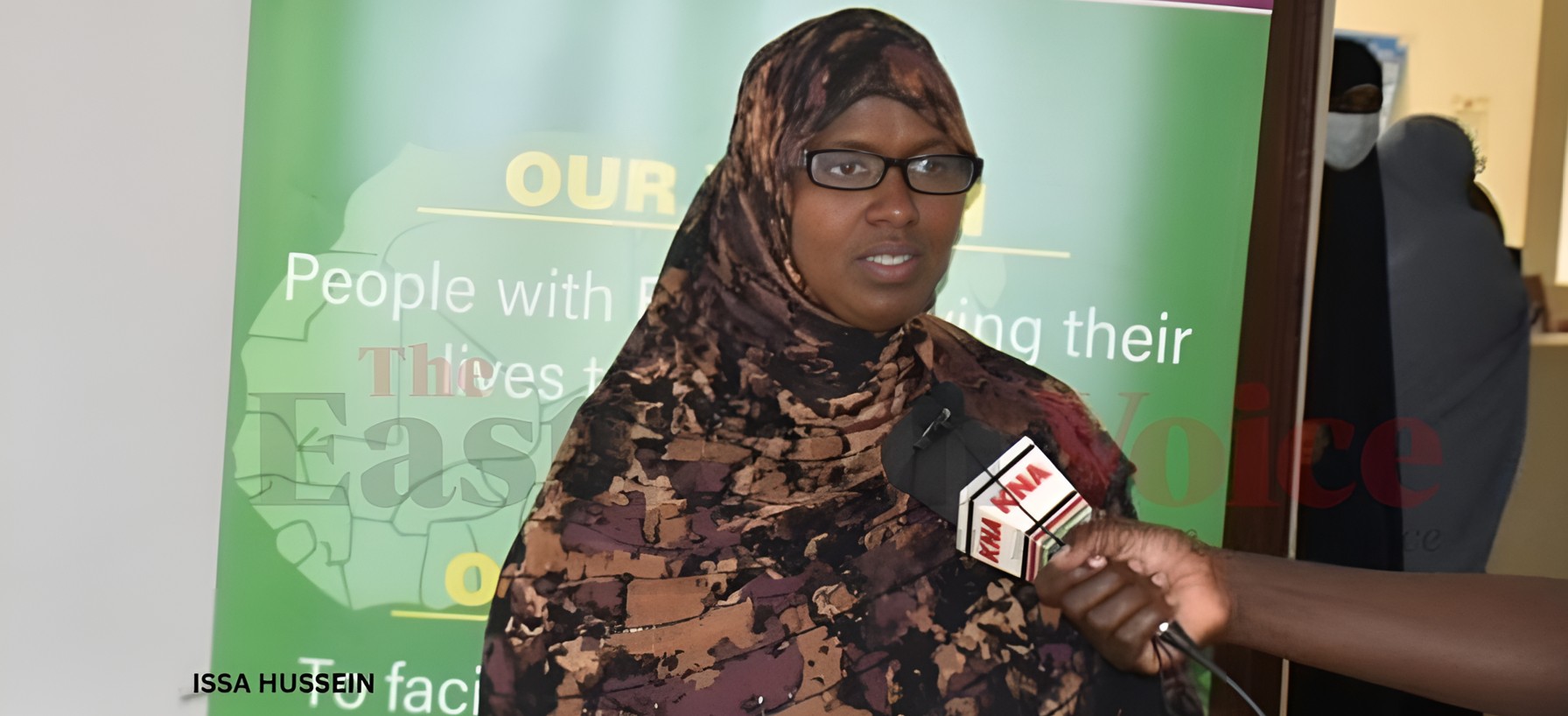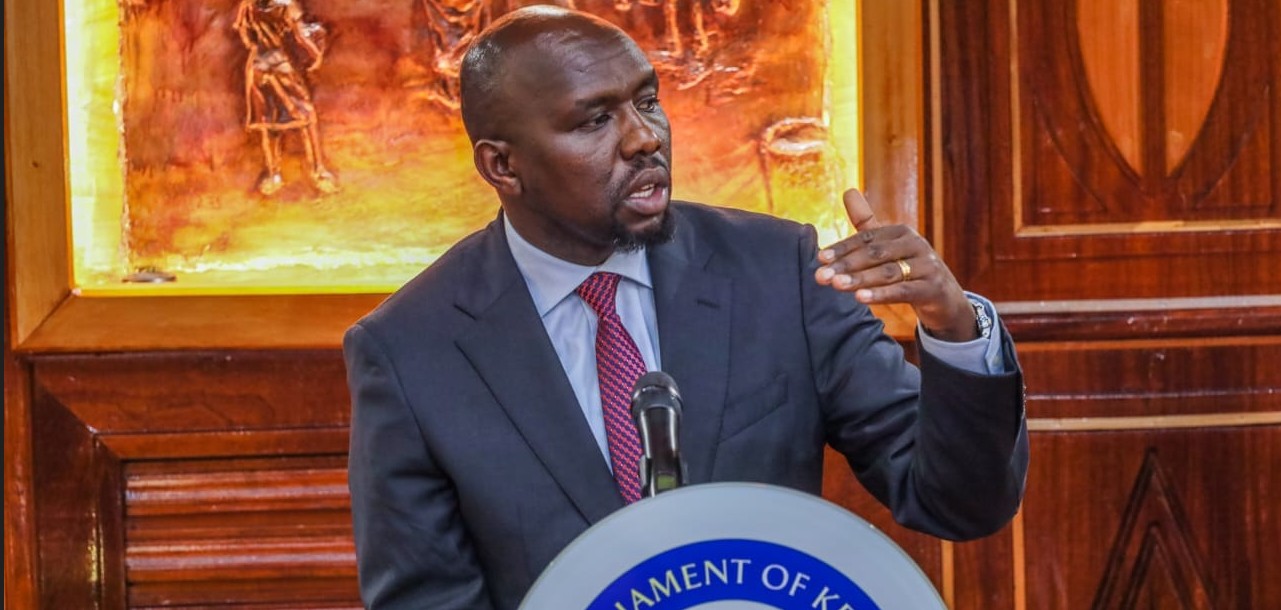Digital workers slam Senate’s controversial business laws Bill amid concerns over rights violations

The digital workers, united under the Africa Tech Workers Movement in Kenya, condemned the passage—without public participation—of the Business Laws (Amendment) Bill of 2024, also known as Senate Bill No. 51 of 2024, last Thursday.
A consortium of digital workers’ associations has expressed strong displeasure with Senators over the recent passage of what they call a "discriminatory" Bill regulating digital work in Kenya.
The digital workers, united under the Africa Tech Workers Movement in Kenya, condemned in the strongest terms the passage—without public participation—of the Business Laws (Amendment) Bill of 2024, also known as Senate Bill No. 51 of 2024, last Thursday.
More To Read
- Clash looms as Senate pushes for expanded powers in new Bill
- Kenyans invited to submit views on proposed population and development council
- Treasury, Senate threaten funding cuts over counties’ financial mismanagement
- Senate asked to investigate Health Fund inequality and costly Green Park underpass
- Senate report reveals alarming neglect, drug shortages and overcrowding in county hospitals
- Senators propose Bill to expand powers in fresh bid to counterbalance National Assembly
Led by Joan Kinyua, President of the Data Labellers Association of Kenya; Wycliffe Alutalala, President of the Digital Taxi Workers Association; and Naftali Wambalo, a former content moderator, the digital workers voiced their deep concern over the Senate’s conduct in passing the Bill, particularly the complete violation of the Constitutional requirement for meaningful public participation.
"Ours is to now caution both houses of Parliament - and in particular the National Assembly - against receiving and acting on the tainted Bill given the irredeemably flawed process at the Senate," said Joan.
She added that their organisations are serving notices of intended actions, including legal challenges, to reverse these violations should Parliament proceed to validate and entrench the illegality.
Flawed process
Alutalala criticised the Bill not only for the flawed process but also for its harmful content. Although "process" is very important, he noted, the Bill is "as dangerous in spirit as it is criminal in intent."
"The Bill seeks to legalise the violation of workers' rights while protecting foreign commercial and political interests," he argued.
He further explained that the Bill aims to grant permanent immunity from prosecution in Kenya for technology companies that may underpay, discriminate against, harm, or even cause death to their workers while operating in the country.
"This means that if the Bill stands and becomes law, it will be illegal for a tech worker to sue a tech company in Kenya even if the company's violations have harmed them. We find this unconscionable and a great dereliction of duty by the Senate of Kenya," he added.
The tech workers expressed sadness over the disproportionate power and influence technology companies seem to wield over the presidency and, by extension, the Senate as an independent legislative body.
Naftali Wambalo believes the legislation worsens worker vulnerability and exploitation, undermines hard-fought human rights gains in labour relations, weakens collective bargaining power, and removes safety protections that traditionally balance labour and capital interests.
"Senators have written and passed a law that gives foreign companies a free hand to arbitrarily cut salaries, extend working hours without fair compensation, detain workers in unfavourable working conditions and erode job security," Wambalo lamented.
Analyse constitutional violations
The group announced that they have instructed their legal teams to scrutinise every detail of the legislative process for non-compliance and to analyse each clause of the Bill for constitutional violations. They plan to challenge the Bill in court if Parliament fails to take satisfactory corrective action.
Their concerns stem from a landmark High Court ruling involving Meta, the parent company of Facebook.
In April this year, the Court ruled that it has jurisdiction to hear a case accusing Meta of promoting content that fueled ethnic violence and killings in Ethiopia between 2020 and 2022.
Mandi Mudarikwa, Head of Strategic Litigation at Amnesty International, said the ruling offers hope that marginalised groups can access justice regardless of location. She stressed that "the idea of looking at countries outside the US and Europe as mere markets where profits can be made in the absence of accountability must be challenged."
"It's time for these platforms to abide by their responsibilities and prioritise human rights over profit," said Mandi.
Significant legal questions
The Meta case raised significant legal questions about Facebook’s algorithmic practices and their impact on rights protected under Kenya’s Bill of Rights, as well as international human rights law.
Since Kenyan courts have jurisdiction to determine rights violations and interpret the Constitution, the Court confirmed it would hear the matter. As required by Section 165 of the Constitution, cases involving substantial legal questions must be heard by an uneven number of judges; accordingly, the matter has been referred to the Chief Justice for empanelment.
After the ruling, Meta’s legal team requested permission to appeal and to seek dismissal of the petition.
The Katiba Institute brought the case to court in the public interest, arguing that the hateful and violent content on Meta’s Facebook platform violates Kenya’s constitutional provisions.
The case is supported by major human rights organisations, including Amnesty International, Global Witness, Article 19, the Kenyan Human Rights Commission, and Kenya’s National Integration and Cohesion Commission, all of whom joined as interested parties.
Top Stories Today














































